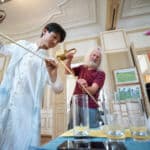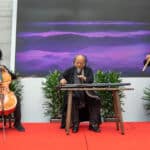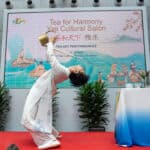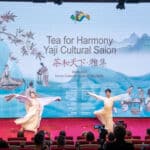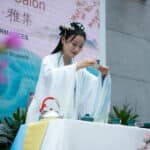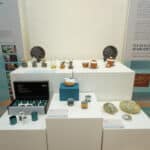Tea for Harmony: Yaji Cultural Salon inaugurated in Brussels
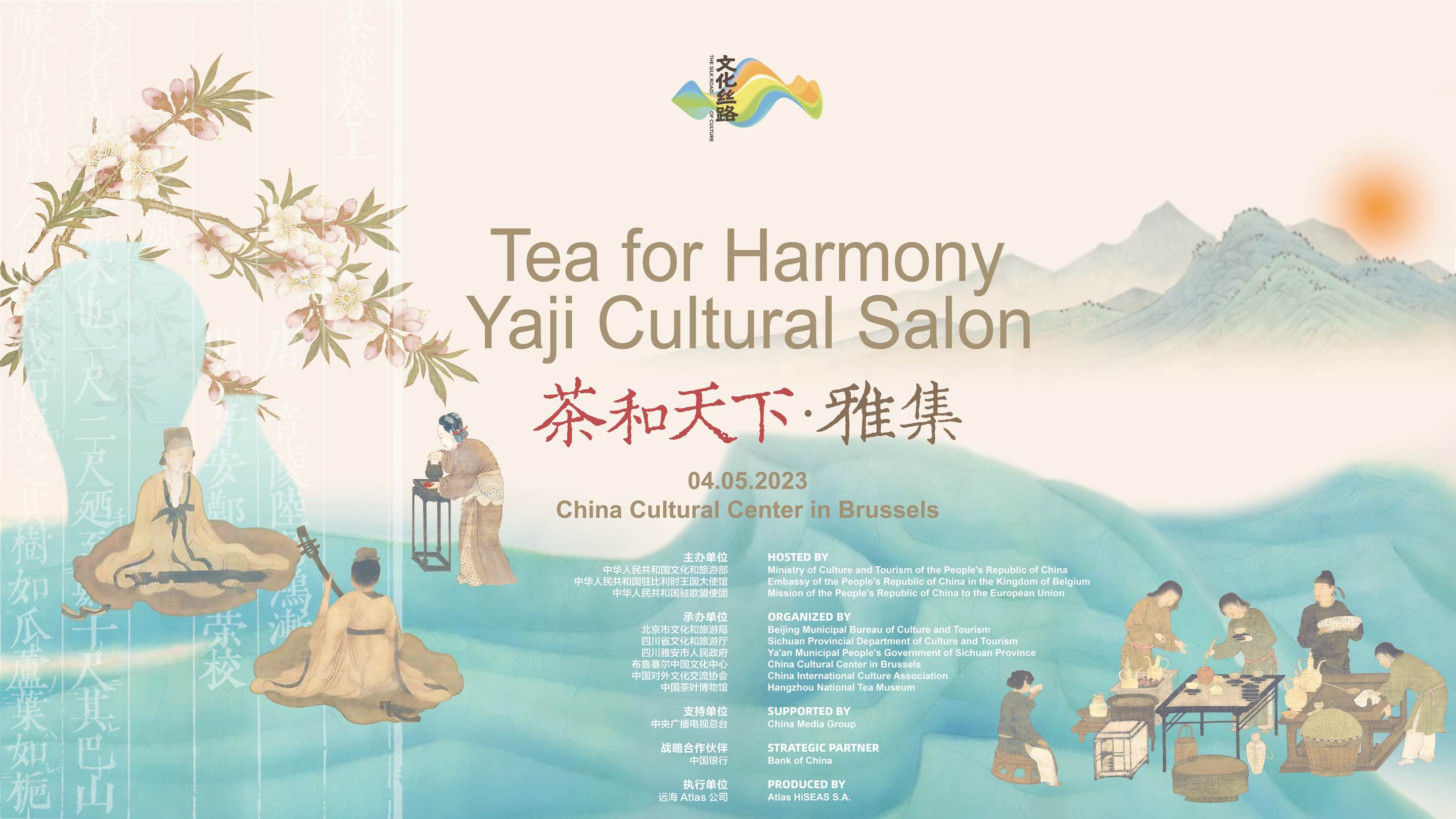
Brussels, May 4, jointly hosted by the Ministry of Culture and Tourism of China, the Embassy of China in Belgium, and the Mission of China to the European Union, the opening ceremony of the “Tea for Harmony: Yaji Cultural Salon” was held at the China Cultural Center in Brussels. MR. FU Cong, Chinese Ambassador to the EU and MR. CAO Zhongming, Chinese Ambassador to Belgium, and over 100 prestigious guests, including officials of the European Union and ambassadors of other countries to Belgium and the European Union attended the ceremony.
Yaji, which means “gathering all that is elegant” in Chinese, was a common way for ancient Chinese scholars to collectively enjoy their cultural heritage.
The “Tea for Harmony: Yaji Cultural Salon” is “a reflection of Chinese culture which attaches great importance to peace, elegance and harmony between man and nature,” CAO Zhongming, Chinese Ambassador to Belgium, told the event at the ceremony.
Chinese tea has been traded all over the world for 2000 years, first via the ancient Silk Road stretching from Chang’An (the ancient capital of China) to Rome, Italy. The cargoes travelled a long way through the countries of Central Asia.
“The ancient Silk Road promoted communication and trade, but also cultural exchange between China and other countries. Chinese tea was one of the most important products traded along the Silk Road,” CAO said.
FU Cong, Chinese Ambassador to the European Union, remarks that tea originated in China and is also prevalent worldwide. Although there are thousands of miles between China and Europe, the sea and mountains will not stand in our exchanges and communications. In the past, tea was traded to Europe via the Silk Road, which unveiled the historical monument of the China-Europe exchange. Today, the trade and production of tea created new future development space between China and Europe in common interests, such as ecology, society, governance, etc., and will surely bring great benefits to the world. FU believes that under the guidance of the leaders from both sides, China and Europe will be upholding the spirit of mutual respect, win-win cooperation and mutual development.
The salon held in China Cultural Center in Brussels is part of the series of global events in celebration of the first anniversary of the inclusion of “traditional Chinese tea processing techniques and associated social practice in China” on the Representative List of the UNESCO Intangible Cultural Heritage of Humanity in November 2022, and the upcoming International Tea Day on May 21. The salon combines multiple cultural forms such as tea tasting, flower tours, cense, music, etc., and featuring with cultural and art performances, tea culture and lifestyle theme exhibitions, and technique demonstrations and interactive experiences, etc. to tell the vivacious stories of China.
The “Tea for Harmony” theme exhibition has three chapters, “The Long History of Chinese Tea”, “The Everlasting of Chinese Tea”, and “The Coherence of Tea Culture”, through systematic introductions of the history, lifestyle and worldview of tea to convey the Chinese humane spirit and lifestyle philosophy in the Chinese tea cultural background, and to reveal the important role of tea in exchanges crossing borders, boosting the common prosperity via exchanges between China and worldwide civilization, and enjoys a widespread reputation. The “Sichuan, Home to Panda and Tea” photo exhibition from Sichuan province is also now available at our center, through nearly 50 pieces of photographs to showcase Sichuan’s natural scenery, local lifestyle, and tea-associated folk traditions and culture.
At the opening event, tea artists from Sichuan province performed the famous traditional Tea Art moves – the “Longxing Tea Art with 18 moves” and the “Tianfeng Tea Art”, which are known as the “Zen” and the “Celestial” of tea, that can bring you the inner peace, comfort, and joy of tea tasting. Beijing artists brought the “five essences” of the lifestyle of traditional Chinese scholars, “Qin, Calligraphy, Tea, Flower, and Cense”, for the audience to experience the aesthetic of traditional Chinese culture. The delegations of culture and tourism from Sichuan and Beijing also introduced featured resources of culture, tourism and art to the industries in Belgium and Europe, to boost and accelerate the cultural and tourism exchanges and cooperation between China and Europe.
The exhibition opens to public from May 5 to Mid-June at the China Cultural Center in Brussels.

